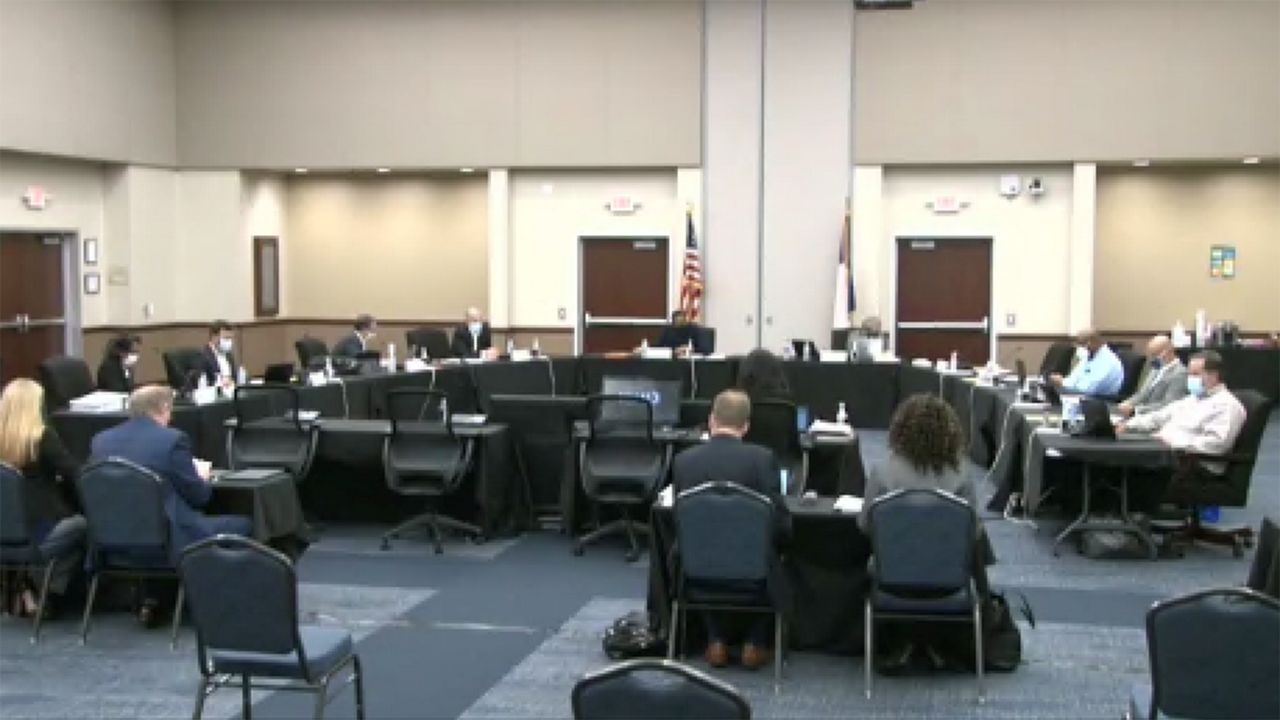DALLAS — Diversifying leadership within schools and supporting measures aimed at providing racial equity continue to be a focal point for the Dallas Independent School District. During its latest meeting, the Board of Trustees was updated on its plans to achieve such goals.
“I think this and the way you are structuring it, it’s going to provide districts across north Texas a path to actually operationalizing the spirit of racial equity in the district,” said trustee Miguel Solis, of District 8, after hearing the presentation.
Sharon Quinn, DISD’s deputy chief of racial equity, led the discussion outlining efforts to hire more Black educators and address issues such as suspension rates among Black students. According to Quinn, the district learned that African American students were disproportionately suspended.
“We have eliminated the three-day suspension for level one offenses and there’s also a new tool that’s created so administrators get to see the number of suspensions by teachers, the infractions that students have had and also how many times each student has been suspended,” she said. “We are taking a closer look at that, so that we can identify teachers who need support and how we can use our commission to help us bring those numbers down.”
Right now, the district has at least 20 Black male teachers going through the alternative education process. They are expected to be placed in elementary schools throughout the district. DISD rolled out an initiative – The Adjunct Teacher Dallas Residency Program – geared towards recruiting and retaining more Black educators. The program was developed in response to the Resolution on the Commitment of Dallas ISD to Black Students and Black Lives created in the summer.
“In a meeting they said to me not only do they feel that they’re making an impact on our boys, but they’re also making a great impact on our girls who need that male personality that they may not see at home,” said Quinn of the teachers.
Quinn also noted that they have “incentivized” the recruitment and retention process by investing additional monies into teachers and principals at high need schools.
“There’s a proposed $3 million increase for additional funding for the racial equity office and we’ve discussed how we would use that $3 million increase by enhancing, of course, the student experience and assisting with mitigating learning loss, actions, and strategies, purchasing culturally relevant classroom libraries for our campuses and continuing to provide professional development because we know that this one year is not going to be the only year that we will need professional development,” she said.
Instead of making the process of opt-out for pre-AP courses, the district will automatically enroll students who are proficient in such subjects. The change will allow more Black students the chance to take advanced courses in comparison to previous years.
“We’ve also concentrated our efforts to place new programs around the city, so that should students want to remain close to their home schools or in their neighborhoods, we can have opportunities for advancement programs closer to their homes,” said Quinn.
Trustee Joyce Foreman also expressed concerns ranging from recruiting efforts of Black students in magnet programs to the process of renaming schools named after Confederate figures. Foreman brought up a once successful school choice fair that was hosted on the south side of Dallas and insisted more fairs in the area should be hosted in the future. Quinn said the district plans to work with the community and other entities on the renaming of schools bearing Confederate leaders. In the past, the renaming of schools, including but not limited to Stonewall Jackson, Albert Sidney, and Robert E. Lee, took place despite pushback from some in the community.
Last year, the district employed 36 Black men in leadership positions. Now, this year, they have added three more, bringing the total to 39. However, trustee Maxie Johnson of District 5 voiced his dissatisfaction with the numbers despite the increase. After looking around the room during the meeting, he pointed out that few men looked like him in leadership roles.
“When are we really going to tackle that,” he said. “We’re doing nice presentations and they are wonderful. But, when are we really going to attack the systemic racism that has been in Dallas ISD concerning the Black male.”
The next presentation on the district’s racial equity efforts is scheduled for Dec. 3.



